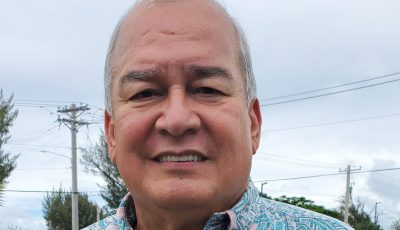Prosecutor: Marijuana odor sets probable cause to search vehicle
Under federal law, the smell of marijuana establishes probable cause to search a vehicle itself, according to assistant U.S. attorney Garth R. Backe.
In the U.S. government’s response to Daniel Muña Quitugua’s motion to suppress evidence, Backe said that Quitugua cites a state court appellate decision for his overarching proposition that the smell of marijuana alone was insufficient to conduct a warrantless search of his vehicle and that officers, instead, needed corroboration.
Backe, however, pointed out that the law in this circuit—as well as in every other federal circuit—says otherwise.
Backe said that two responding police officers will testify they both smelled the odor of burnt marijuana emanating from inside the vehicle driven by Quitugua.
The prosecutor said the U.S. government will further establish that a small, burnt marijuana cigarette—the critical corroborating evidence Quitugua claims is lacking—was in fact found underneath the driver’s side floor mat when the car was processed at the Department of Public Safety.
Backe said the marijuana was admittedly never taken into custody due to an unintentional oversight by the crime scene technician, as she was called away to process the methamphetamine or “ice” paraphernalia that were found.
Quitugua, through counsel Michael Dotts, had questioned the constitutionality of the search done by two police officers on the car he was driving on May 23, 2014, where they seized handguns and ammunitions.
Dotts asked the U.S. District Court for the NMI to exclude the handguns and ammunitions as evidence as the search was unconstitutional since the police had neither Quitugua’s consent nor probable cause to conduct the search.
Here, Dotts noted, the two officers claim they smelled marijuana, but the record fails to show that any marijuana was actually collected as evidence.
Dotts said as no marijuana was collected from the car on either May 23 or June 5 and that there is no evidence to corroborate the human sense of smell.
Dotts said the search is not otherwise justified under the Fourth Amendment, which ensures “the right of the people to be secure…against unreasonable searches and seizures.”
In the U.S. government’s reply, Backe pointed out that no search of the vehicle ever occurred, and that Quitugua’s continued detention after being issued a citation was legally permissible.
Backe said the shopping bag containing the firearms and ammunition was recovered outside the vehicle after Quitugua grabbed it and removed it from the car. The evidence therefore was not the produce of a vehicle “search,” he said.
The prosecutor said the U.S. government will also show at the hearing that the police officer had ample grounds, other than just the smell of marijuana, to suspect that criminal activity was afoot.
Quitugua is a federal probationer who was indicted over the alleged illegal guns and ammunitions that he left behind when he ran away from police officers who had stopped him for a traffic violation.
The indictment charged Quitugua with one count of felon in possession of firearm.
Police arrested Quitugua for allegedly speeding and then running away from police officers, leaving behind a bag that contained three illegal guns and bullets near Northern Marianas College on May 23, 2014.



























